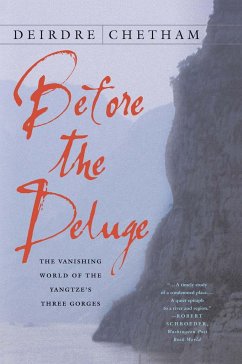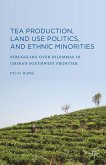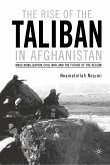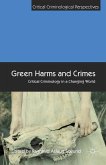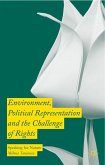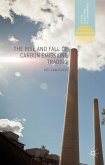"I first sailed the Yangtze in 1983 on the Kun Lun, a foreign-leased cruise ship that went back and forth in seedy glamour between Shanghai and Chongqing. Over the next years, I made many trips along China's longest river, most often on its upper reaches, the section between western Hubei province and central Sichuan province in which the Three Gorges, a spectacular 120-mile stretch of mountains, ravines, and once deadly currents, are located. On board ship, I lectured to foreign tourists about Chinese history, shepherded them in and out of museums and factories, took them to hospitals, and dispatched them onward when necessary on stretchers and in urns. These long, leisurely, and contradictory trips, full of strange and fleeting intimacies, gave me my first introduction to river life."So begins Deirdre Chetham's elegiac book about the towns along the banks of the Three Gorges area of the Yangtze River, written on the very eve of their destruction. The Yangtze flows 3,900 miles eastward from its source on the Tibetan-Qinghai plateau, where the Mekong and Salween also make their start, to Shanghai and the East China Sea. After great controversy, the Chinese government has begun construction of the world's largest hydroelectric dam in the Three Gorges section of the Yangtze, a place renowned for its beauty. For over two thousand years, the Yangtze has been the great transport route linking the coast with the west and southwest and providing irrigation for the farms that fed China. Once the dam is completed in 2009, the water level will rise as much as 350 feet in a hundred-mile stretch of the river. The water will submerge over a dozen large cities, almost 1,500 villages and towns, and innumerable historical and cultural sites. Over a million people are being moved, voluntarily or otherwise, altering not only their lives, but the lives of a multitude of others whose existence is intertwined with the river. A region already struggling with the impact of widespread rural migration is confronting the reality of having even fewer incentives to keep its youth in an area many wish to flee. Before the Deluge captures a sense of the daily life, traditions, and history of the people who live along the Upper Yangtze's Three Gorges area. It chronicles the region's past and present with an eye on the disruption of an existing way of life. Perhaps most importantly, it captures a world that is rapidly vanishing under the rushing waters of one of the world's largest rivers.
Hinweis: Dieser Artikel kann nur an eine deutsche Lieferadresse ausgeliefert werden.
Hinweis: Dieser Artikel kann nur an eine deutsche Lieferadresse ausgeliefert werden.
'...the content is a well-balanced mix of vignettes from real lives and their historical contexts.' - Jo Lusby, City Weekend
'...a meticulously researched, emotionally charged account of China's uphill battle to erect the barricade.' - David Johnson, The Asian Reporter
'Readable and informative, it's highly recommended.' - Karin Glendenning, Chattanooga Free Press
'...a timely study of a condemned place.' - Washington Post Book World
'A vivid last snapshot of the communities about to come to an end with the flooding of the Three Gorges. Chetham has an intimate understanding from many return visits, informed by her Chinese language and her knowledge of history, geography, society, and politics.' - Ezra Vogel, Research Professor, Fairbank Center, and former Director, Fairbank Center and Asia Center, Harvard
'Deirdre Chetham's evocative and informative portrait of a vanishing world will fascinate anyone who has wondered about the social and cultural implications of The Three Gorges Dam...A poignant work, the significance of which will only increase after the deluge.' - Judith Shapiro, author of Mao's War Against Nature: Politics and the Environment in Revolutionary China
'...a meticulously researched, emotionally charged account of China's uphill battle to erect the barricade.' - David Johnson, The Asian Reporter
'Readable and informative, it's highly recommended.' - Karin Glendenning, Chattanooga Free Press
'...a timely study of a condemned place.' - Washington Post Book World
'A vivid last snapshot of the communities about to come to an end with the flooding of the Three Gorges. Chetham has an intimate understanding from many return visits, informed by her Chinese language and her knowledge of history, geography, society, and politics.' - Ezra Vogel, research professor at the Fairbank Center, and former director of the Fairbank Center and Asia Center at Harvard
'...a meticulously researched, emotionally charged account of China's uphill battle to erect the barricade.' - David Johnson, The Asian Reporter
'Readable and informative, it's highly recommended.' - Karin Glendenning, Chattanooga Free Press
'...a timely study of a condemned place.' - Washington Post Book World
'A vivid last snapshot of the communities about to come to an end with the flooding of the Three Gorges. Chetham has an intimate understanding from many return visits, informed by her Chinese language and her knowledge of history, geography, society, and politics.' - Ezra Vogel, Research Professor, Fairbank Center, and former Director, Fairbank Center and Asia Center, Harvard
'Deirdre Chetham's evocative and informative portrait of a vanishing world will fascinate anyone who has wondered about the social and cultural implications of The Three Gorges Dam...A poignant work, the significance of which will only increase after the deluge.' - Judith Shapiro, author of Mao's War Against Nature: Politics and the Environment in Revolutionary China
'...a meticulously researched, emotionally charged account of China's uphill battle to erect the barricade.' - David Johnson, The Asian Reporter
'Readable and informative, it's highly recommended.' - Karin Glendenning, Chattanooga Free Press
'...a timely study of a condemned place.' - Washington Post Book World
'A vivid last snapshot of the communities about to come to an end with the flooding of the Three Gorges. Chetham has an intimate understanding from many return visits, informed by her Chinese language and her knowledge of history, geography, society, and politics.' - Ezra Vogel, research professor at the Fairbank Center, and former director of the Fairbank Center and Asia Center at Harvard

